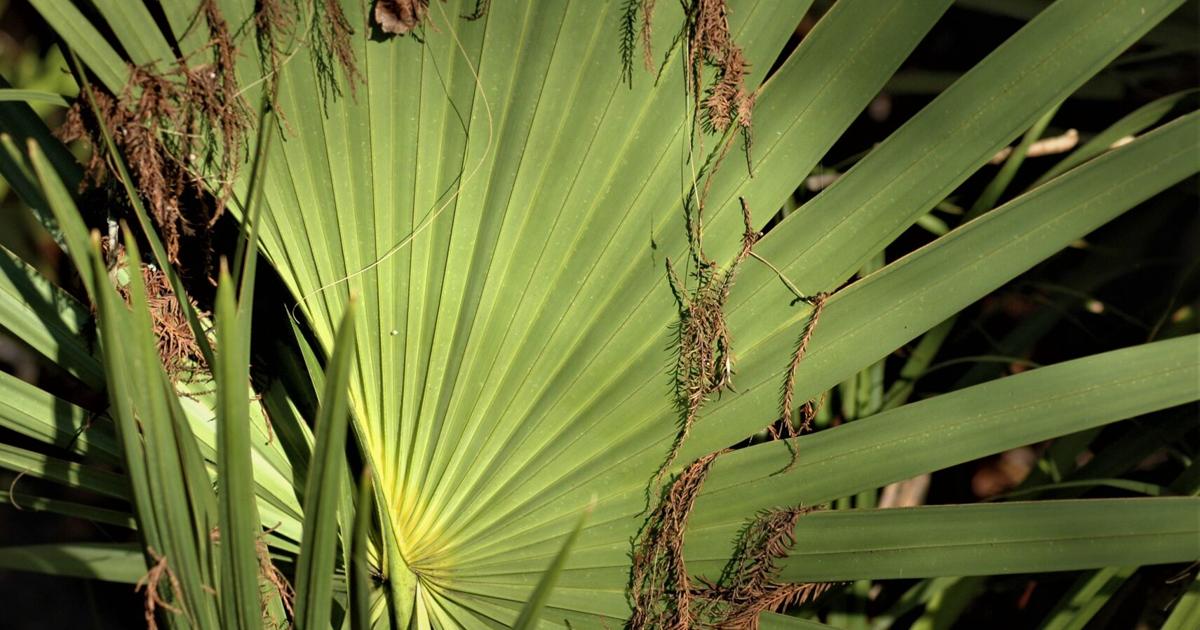
Wait until May to plant tropicals for pool landscaping, but use some evergreens as well | Home/Garden
We are just completing the installation of a new pool at our home and are now ready to plant some tropical landscaping. The planting area will get full afternoon sun. I’ve heard you say November is the best time to plant trees — does this also apply to palm trees? What type of palm trees are the hardiest and which would you recommend? What other types of smaller tropicals (palms, bananas, etc.) do you advise? — Paul Baranova
Fall planting applies to hardy trees and shrubs that are not bothered by winter freezes, not tender tropical plants. Palms fall into the tropical plant group and are best planted from May to August. They root best when the soil is warm. The August cutoff date is so that newly planted palms will have time to make root growth and settle in before winter. Palms planted late are at more of a disadvantage should we have significant freezes like we did last February. Among the hardiest palms are cabbage palms (Sabal palmetto) and windmill palms (Trachycarpus fortunei), and these are nice palms to plant around pools as the heads are not so large. Queen palms (Syagrus romanzoffiana) and pygmy date palms (Phoenix roebelenii) look great around pools, but are less hardy and will be damaged or killed by temperatures below 20.
As to smaller tropicals, it is a matter of taste (what you like) and availability at nurseries. Popular choices for sunny areas include hibiscus, bird of paradise, variegated shell ginger, tibouchina, angel’s trumpet, banana, firecracker plant (Russelia), ixora, night blooming jasmine and split-leaf philodendron, to name a few. This is late in the season, however, to plant any tropicals. I’d recommend you install any hardy trees, shrubs, ground covers and perennials that you intend to use in the landscape design this fall, and wait to install the tropicals in April or May. It’s not like the tropical plants would look that nice over the winter anyway, as freezes will make bananas, gingers, etc. look bad. Keep this in mind when you decide what percentage of plant materials around the pool will be hardy and evergreen and what will be tropical. If you use exclusively tropical materials, the area will look far less attractive during the winter cold.
This time of the year with the St. Augustine grass going dormant for the winter, all we have is weeds covering our lawn. The most predominant weed is dollarweed. What can we use this time of the year to try to rid our lawn of the weeds? — Melissa Longman
Atrazine is the best herbicide for dollarweed in St. Aug. It will also control a wide variety of other weeds. You can make an application during mild (70s/60s during the day and 40s/50s at night) weather this fall. Follow label directions carefully. The Atrazine will also suppress the growth of weed seeds. Assess your lawn weed issue in January or February. If needed, you can make another application during a mild spell then.
I’m growing a variety of peppers (cayenne, Tabasco, Habanero, etc.). I know I can order seeds online, but what is the process to take seeds from my existing plants? How do you dry/treat/preserve them to be viable next year? — David Miller
First, allow the fruit to fully ripen. I like to wait until the pepper actually starts to shrivel slightly before I harvest it. Open up the fruit and extract the seeds. Use a strainer to rinse the seeds thoroughly under running water. Spread the seeds out on a paper towel and allow them to thoroughly dry for about a week. Then, store the seeds in an air tight container in your refrigerator until you plant them next year. If you are growing any F1 hybrid peppers, be aware that they do not come true from seeds. The offspring will be different from the original plants. Also, it is possible that different types of peppers growing close together may have cross-pollinated, and that will lead to offspring that combine the characteristics of the parents.
Dan Gill is a retired consumer horticulture specialist with the LSU AgCenter. He hosts the “Garden Show” on WWL-AM Saturdays at 9 a.m. Email gardening questions to [email protected].
